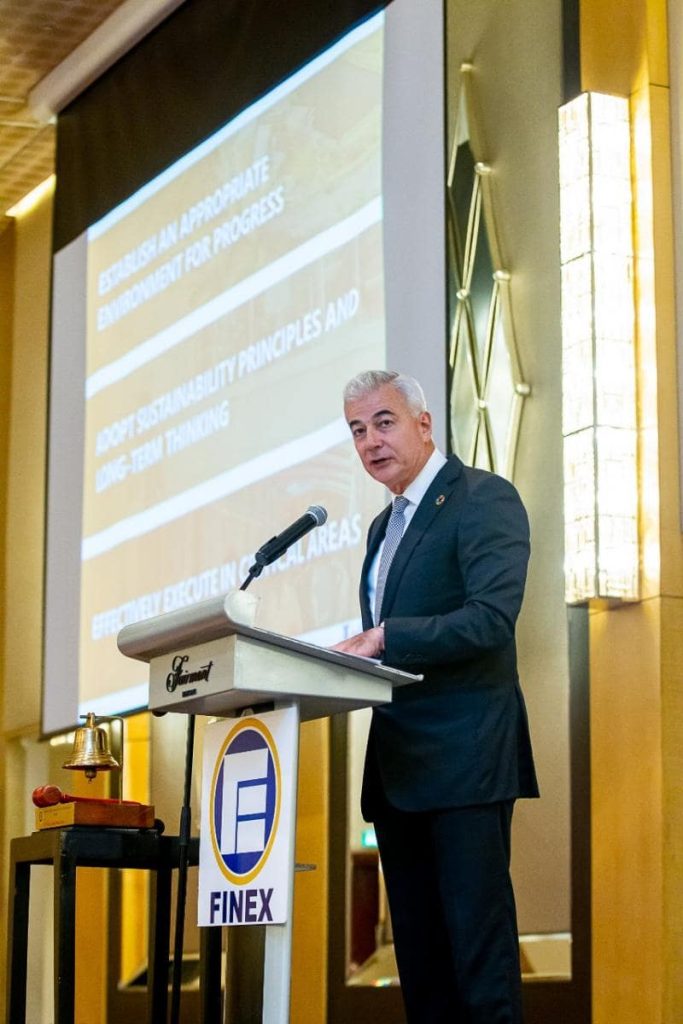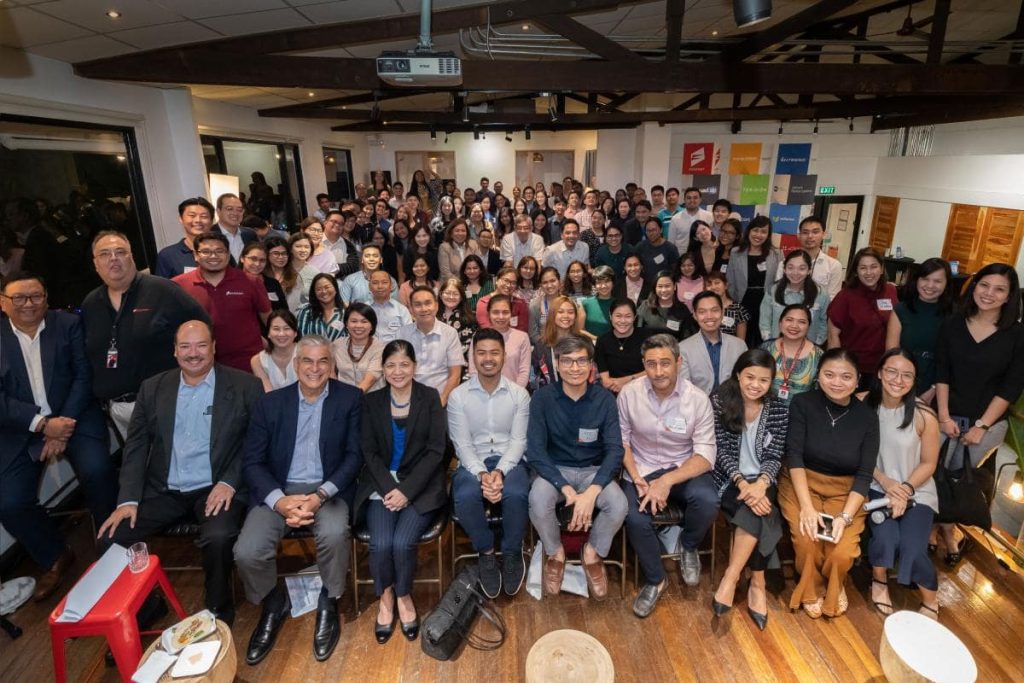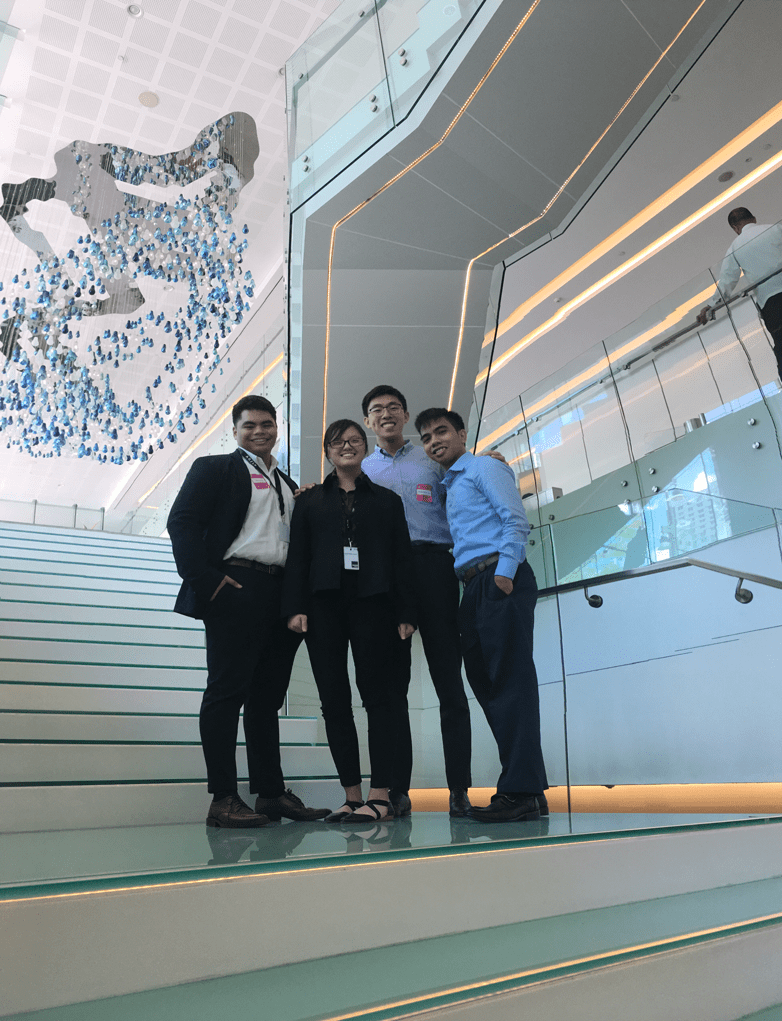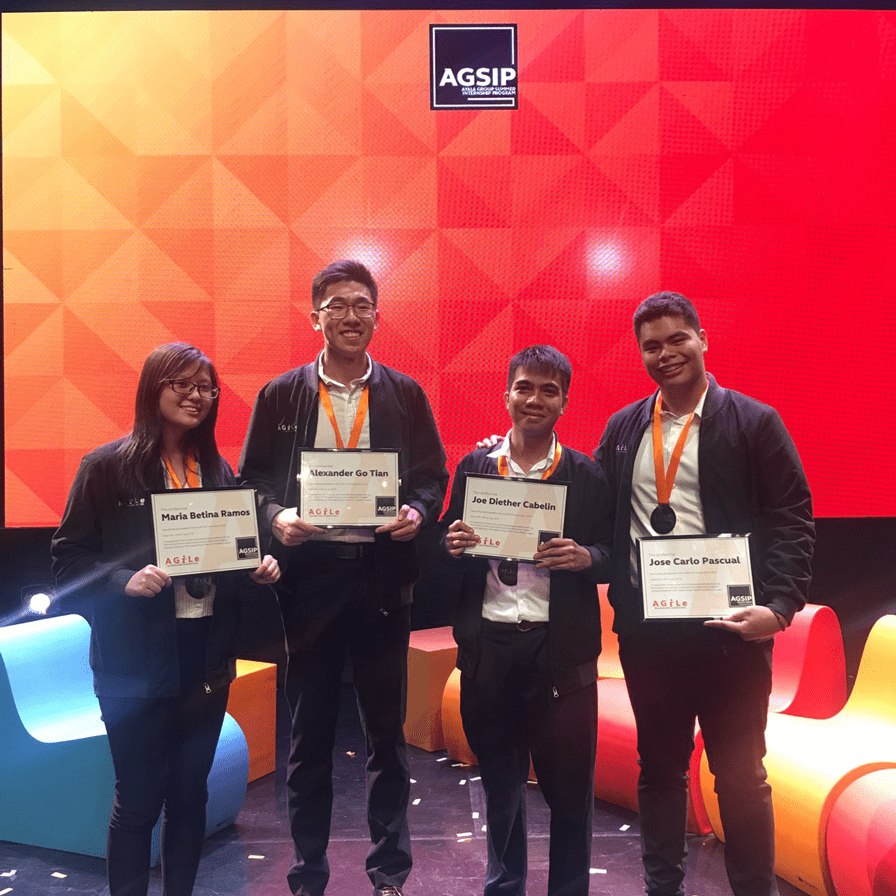Keynote Remarks
Fernando Zobel de Ayala
President and COO, Ayala Corporation
Financial Executives of the Philippines
25 July 2019
***
Mr. Eusebio Tan, President of FINEX; other officers and members of FINEX present today.
Good afternoon. Thank you for the kind invitation to join your general membership meeting. It is an honor to share some thoughts on building a progressive Philippines through sustainable and long-term visioning and execution. I believe that these are critical topics for the development of our economy, especially given Asia’s rapid ascent as the global epicenter for massive economic growth.
We as a country cannot afford to let this opportunity pass us by. I believe that the Philippines remains in a unique position to ride this strong period of growth in the region: our economic fundamentals are strong, and we continue to enjoy a demographic dividend. We do however face several economic and social challenges that we must address. In fact, accelerating our growth depends on how well we address persistent issues on inclusivity and human capital development. Ensuring long-term prosperity for our people requires that we in the private sector adopt a long-term view, collaborate more closely and engage on a more concerted effort at generating sustainable social and economic impact.
In a report earlier this month, McKinsey boldly exclaimed that Asia’s time as the world’s economic powerhouse had already arrived. In 2000, Asia accounted for just under one-third of global GDP. Today, the region is on its way to exceed 50% of global GDP by 2040 and it may also account for 40% of total global consumption by that time. Furthermore, despite Asia’s diversity in cultures, governments, and levels of development, there is a region-wide upward trend in key economic and social indicators. For McKinsey, the question is no longer about how quickly the region will rise. It will now be about how Asia will lead this new global configuration.
On the private sector side, McKinsey noted that Asia’s share of the world’s top performing conglomerates rose from 19% to 30% over the past two decades. For instance, in 1997, only eight Philippine firms, who collectively generated $3 billion of revenue, were part of the largest 5,000 companies worldwide. As of 2017, that figure almost doubled to 15 Philippine companies, earning $60 billion of revenue.
Our capital markets have likewise grown tremendously in recent years, with FINEX’s contributions along with others. Since 2000, more and more companies have accessed funding through the public markets, attracting more capital and fueling aggressive growth. Philippine companies raised roughly $9 billion through public markets from 2000 to 2009. Since 2010, this figure tripled to nearly $27 billion.
Several pieces of research mention that the country can reap the benefits of these developments. However, this comes with a caveat that the right conditions should be present. The Boston Consulting Group notes that the Philippines will transition to middle income country status by 2030, with the Middle Income and Affluent Consumer segments expanding to cover 58% of the population by 2030. Meanwhile, HSBC projects that the Philippines may become the 27th largest economy out of 75 countries by 2030. In their opinion, the size of our economy may surpass Malaysia, Hong Kong, Taiwan, and Singapore by that time.
While HSBC’s model does not fully consider the effects of possible trade wars and natural disasters, among others, the forecasts were dependent on certain indicators. These include the country’s potential to grow further based on a governance system conducive to investment; openness to technology; and the quality of its human capital, as seen in its demographics and the quality of healthcare and education.
I believe that we continue to have a golden opportunity to fully participate in Asia’s continuing growth story. However, as the literature implied, we need to establish the appropriate environment for progress. In my view, we need a deliberate and strong alignment with sustainability principles and adopt clear and consistent long-term thinking. This of course should also be complemented by effective execution and meaningful impact in critical sectors. Let me first talk about sustainability and long-term thinking.
An increasing number of companies are adopting a holistic view of sustainability—that is, sustainability not just regarding the environment, but also on how a company can create long-term social and economic value through businesses and philanthropic efforts. This has been at the core of Ayala’s thinking for several years now. We wanted to ensure that sustainability was embedded in our operations and that we could make tangible contributions to the UN Sustainable Development Goals. We are guided by our Sustainability Blueprint, wherein all our companies committed that by 2030, significant contributions will have been clearly made to improve social and economic inclusivity, innovation and infrastructure development, and climate resiliency. Whereas previously, we only reported our contributions, we have now set targets and identified champions for the SDGs that are aligned with our businesses.
Embracing the SDGs as guiding principles to doing business is a winning proposition for both the company and its stakeholders. It goes beyond improving a company’s brand; actual economic value is generated, and companies help the country by addressing underserved needs through inclusive business models, products and services. In addition, integrating sustainability and long-term thinking to business operations is a key consideration for many international institutional investors.
We have experienced this in our engagements with several strategic partners, large institutional investors, sovereign funds, and pension funds. As an example, CDPQ—one of the world’s largest institutional investors that mainly manages the pensions of Quebec, made a significant investment in Ayala last year. They made it very clear that it was important to them that our companies were aligned in a vision of investing in critical industries with a lasting and far-reaching impact to a growing economy and society.
Second, an increasing number of young global workers are looking for meaning in their jobs. This is particularly true for the Millennial generation, Generation Z, and most probably for Generation A—described by ABN Impact as that segment of the population born from 2010 onwards. Studies show that companies who demonstrate that their operations contribute to a larger societal goal garner higher employee engagement scores. Beyond behavioral metrics, this also has an economic incentive: companies can attract the best available talent, keep employee attrition rates at a minimum, and subsequently significantly decrease turnover and training costs.
For us to fully participate in the ongoing renaissance of Asia, aside from sustainability and long-term thinking, we are called to generate authentic, broad-based, and meaningful value in areas with the strongest potential for impact. We cannot make a quantum leap in development if we do not effectively address lingering economic and social challenges.
This has been mentioned in previous forums, but I believe that it is worth emphasizing: Given persistent gaps and existing opportunities for value creation, four areas hold tremendous potential to boost our development. These are financial inclusion, sustainable tourism, education, and healthcare.
On financial inclusion, as you know, about two-thirds of Filipinos are unbanked and exposed to the high risks connected to unauthorized lenders charging exorbitant rates. We are delighted that the Bangko Sentral has been open to alternative means to access the financial system, spawning several innovative solutions both by incumbents and fintechs. Encouraging data from the Milken Institute shows that our fintech industry has been expanding. Fintech investments increased from $3.6 million in 2015 to $96.6 million as of 2018. Over the same period, 67 fintech companies were also established in the country. I have no doubt that this sector will continue to expand quickly given the enormous opportunities.
Our contribution in this shared mission for greater financial inclusion includes BPI BanKo, which we established a few years ago to serve micro, small, and medium enterprises, mostly in rural areas. To date, BanKo has disbursed P4 billion of microloans to 60,000 entrepreneurs across its 200-branches nationwide. Mynt, our joint venture with Ant Financial at Globe, harnesses mobile technology and alternative credit scoring models to likewise provide microloans to its 171,000 users with active credit lines. To date, Mynt has disbursed P640 million of credit. After testing these models, it is our intent to now grow both entities exponentially in the medium term. It is our hope to serve a far larger segment of society and to provide them the capital to participate in the country’s growth.
Shifting now to sustainable tourism, this is a sector that our country has not yet fully embraced and yet it is probably the one sector that can have the highest impact on job creation as well as poverty alleviation in our rural areas. We have all the natural skills and natural environments for this industry, but we continue to have one of the lowest international tourist arrivals in the region. There is no question that there has been a significant improvement in the last ten years. To illustrate, between 2006 and 2018, international arrivals grew 2.5x to an all-time high of 7.1 million. The sector’s direct economic impact has also more than doubled in the last decade, now accounting for 8.7% of GDP and 2.3 million jobs. By 2028, the World Travel and Tourism Council projects that tourism’s direct contribution will reach P2.5 trillion, equivalent to around 10% of GDP and an estimated 3.2 million jobs. This will require a clear ambitious masterplan that is embraced and well-executed across several administrations by both government and the private sector.
By comparison, as of 2018, Indonesia attracted close to 16 million visitors, Singapore had close to 19 million, Malaysia had 25.8 million, and Thailand continues to lead ASEAN at 38.2 million international tourist arrivals. I do, however, hope that as we aggressively grow this sector, we will learn from the mistakes in the region and make sure that we develop in a responsible and sustainable manner. We already have enough examples of destroying some of our most unique destinations. Secretary Berna Romulo Puyat should be commended for her efforts in creating the proper guidelines for responsible and sustainable tourism.
Sustainable tourism holds much potential to significantly boost our country’s development. Towards this end, we partnered with the UP School of Economics to hold a Sustainable Tourism Forum to engage with all stakeholders on how we can work together to further this opportunity. May I take this moment to invite all of you to join us on September 27, from 2pm to 5pm, here at the Fairmont Hotel. Tourism is a sector that we will be investing in very heavily in the coming years, and we welcome working with a broader coalition of players to bring the quality of our tourism industry much closer to or even exceed to peers in ASEAN.
The next two areas may perhaps be the most important as it involves investing in the long-term welfare of our people. This involves providing our countrymen with accessible and effective education and healthcare that in turn leads to dignified employment, and a stronger and healthier population.
Regarding education, we continue to face a serious condition wherein 3.6 million Filipinos are out-of-school youth. For those that do manage to graduate, it is disheartening that a 2017 study found that 65% of graduates lacked industry-relevant skills, and were, thus, ineligible for available jobs. We must provide our youth with more accessible opportunities to enter school, and while there, teach them relevant technical and soft skills that can give them a head start as they join the workforce.
With our partnership with the Yuchengco group, we now reach 60,000 students through Mapua University, Malayan Colleges Laguna and Mindanao, National Teachers College, University of Nueva Caceres, and APEC Schools. In some universities and other partner schools, semester-long curricula are co-designed with employers to ensure that relevant skills are inculcated among students. We are delighted that 90% of graduates who have undergone this co-designed program are employed within 90 days, and with 20% higher starting salaries.
On healthcare, meanwhile, it is unacceptable that while we are proud of our demographic dividend and solid economic fundamentals, the physical well-being of our people remains greatly subpar. Allow me to raise a dire and seemingly overlooked issue: the country currently faces a massive case of child malnutrition and stunting—or children with impaired physical and mental growth, manifested by their low height.
Referring to national health surveys, economists Dr. Cielito Habito and Dr. Emmanuel De Dios, cite that 33% of children under the age of 5 are stunted as of 2015. For the poorest 20% of the population, the rate of child stunting is at 50%. At the same time, 21% of children are underweight. We cannot allow this to continue—school feeding programs and nutribuns are an inadequate solution. We need a comprehensive plan that addresses the root causes of the issue—from preventing teen pregnancies that may be resulting in malnourished births; to targeted and sustained nutrition programs both for expectant mothers and children in the country’s poorest communities.
Dr. De Dios has written about how Filipinos are among the shortest people in Southeast Asia. A disturbing trend is that the height of Filipina women has been diminishing over a 50-year period, since 1946. He stated that the Philippines, along with Pakistan, are the only major Asian countries where height impairment has occurred. The other cases are found in Africa. Beyond being a physical growth issue, this has economic implications. To quote Dr. Habito’s column, “A 1% loss in adult height as a result of childhood stunting is linked with a 1.4% loss in economic productivity, resulting in 20% less earnings as adults. Stunting is associated with up to 3% GDP losses annually.” How can we possibly grow sustainably as a country when a third of our people are born with this disability? We must immediately and effectively address this critical and often ignored issue. It can be resolved, and other countries have seemingly found a model for success. For instance, Peru previously had one of the highest stunting rates in South America. By looking at stunting as a human development challenge and considering it as a national priority that transcends multiple administrations, Peru was able to dramatically reduce its child stunting and malnutrition rate in under 10 years—from 28% in 2008 to just 13% in 2016.
To close, we have a unique opportunity to continue and even increase the impressive growth that we have achieved consistently for the past 10 years in a vibrant and fast-growing region. But it will not happen if we do not build far stronger foundations in infrastructure, social services, financial inclusion, job creation and education among others. The building of these foundations will take time and will have to be continued from one administration to the next. FINEX and the rest of the private sector play a critical role, given our reach, scale, and capabilities. A comprehensive, collaborative, and concerted effort is needed to properly respond to these challenges.
There is no question that we possess the skill and resources to create a sustainable, progressive, and inclusive Philippines—one that we can attain within the foreseeable future.
Once again, thank you very much for this invitation.
***
View presentation here.



